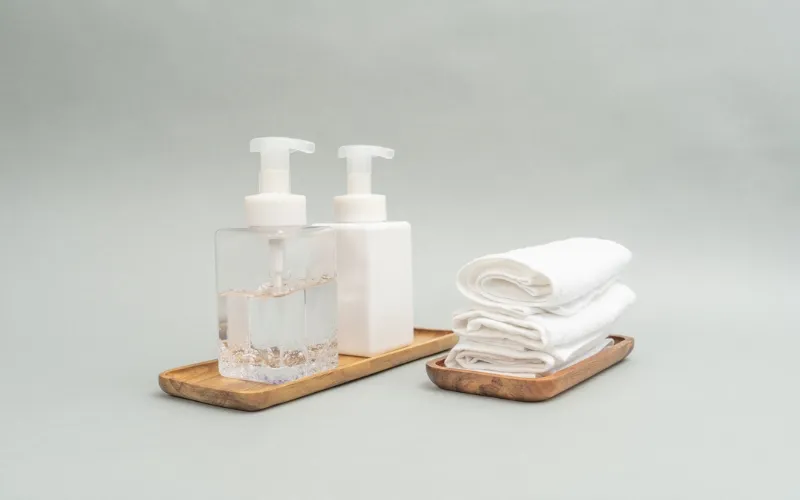Boric acid has been a home remedy for various ailments for years. Especially in women’s health, it’s often touted as a potential treatment for vaginal infections. But what about its use during menstruation? Let’s explore the pros and cons of using boric acid on your period.
What is Boric Acid?
Before we dive into the effects of boric acid during menstruation, it’s essential to understand what it is and its general uses.
Composition and Properties
Boric acid, derived from boron, is a weak acid with antiseptic properties. Various products often use it as an antifungal agent, insecticide, or pH balancer.
Common Uses in Women’s Health
In women’s health, boric acid suppositories are frequently recommended for treating bacterial vaginosis and yeast infections. The acid creates an environment in the vagina that’s unfriendly to these infections.
Pros of Using Boric Acid On Your Period
For various reasons, many women swear by boric acid suppositories, even during menstruation.
Effective against BV and Yeast Infections
For those who experience symptoms of bacterial vaginosis or yeast infections during their cycle, boric acid can offer relief by rebalancing the vagina’s pH levels and combating the overgrowth of harmful bacteria.
Quick Symptom Relief
Many report immediate relief from itching, odor, and discomfort after using boric acid suppositories, making their menstruation more manageable.
A Natural Alternative
For those wary of prescription medications or over-the-counter treatments, boric acid offers a more natural alternative for treating vaginal discomfort.
Cons of Using Boric Acid On Your Period
Like any remedy, boric acid isn’t without its drawbacks, especially when used during menstruation.
Potential for Irritation
Some women might experience irritation when using boric acid, especially if they have a sensitive vaginal area. Symptoms can include burning or stinging.
Risk of Overuse
Over-relying on boric acid can disrupt the natural flora of the vagina. It’s essential to follow healthcare provider recommendations and not overuse.
Not Safe During Pregnancy
Pregnant women should avoid using boric acid as it can harm the fetus. Always consult with a doctor before starting any treatment.
Tips for Safe Use of Boric Acid During Menstruation
Here are some tips to remember to ensure the safest possible experience when considering boric acid during your period.
Avoid Oral Consumption
Boric acid is toxic when ingested. Ensure you only use it as directed, typically as vaginal suppositories. If ingested, seek medical attention immediately.
Wear a Panty Liner
After inserting a boric acid suppository, some women experience discharge as the product dissolves. Wearing a panty liner can help manage this.
Wash Your Hands Thoroughly
Before and after inserting a suppository, ensure you wash your hands well to avoid introducing any additional bacteria to the vaginal area and to remove any residue of boric acid from your fingers.
Alternatives to Boric Acid
If you’re unsure about using boric acid or have experienced side effects, there are alternatives you can consider.
Over-the-Counter Treatments
Many pharmacies offer over-the-counter treatments for bacterial vaginosis and yeast infections. These can be creams, gels, or oral medications.
Probiotics
Certain strains of probiotics have been shown to help maintain a healthy vaginal pH and prevent the overgrowth of harmful bacteria.
Maintaining Good Hygiene
Regularly cleaning the vaginal area (without douching), wearing breathable underwear, and changing tampons or pads frequently can help prevent infections.

Boric Acid and Other Menstrual Products
It’s common for women to wonder about the compatibility of boric acid with other menstrual products.
Tampons and Boric Acid
If using boric acid during your period, inserting the suppository after removing your tampon is advisable, allowing the boric acid to work effectively. You can insert a new tampon afterward if needed.
Menstrual Cups and Boric Acid
It’s recommended to avoid using menstrual cups when using boric acid suppositories to ensure the product can dissolve and distribute effectively.
Conclusion
While boric acid can be a godsend for many women, especially those who suffer from recurring infections, it’s crucial to use it wisely.
Always Consult with a Doctor Before starting any treatment, especially during your period, it’s essential to consult with a healthcare provider. They can provide guidance tailored to your specific needs and conditions.
Follow Instructions Carefully If given the green light to use boric acid, always follow the instructions. Overuse or misuse can lead to further complications.
Listen to Your Body Every woman’s body is different. If you experience adverse reactions, stop use immediately and seek medical attention.
Is boric acid safe to use when trying to conceive?
If you’re trying to conceive, it’s advisable to avoid using boric acid as a precaution, as its safety during pregnancy hasn’t been well-studied.
Can boric acid interfere with pregnancy tests or ovulation tests?
No, boric acid should not interfere with pregnancy or ovulation tests. It doesn’t affect hormone levels.
Can I use boric acid if I have brown spotting during my period?
Brown spotting can be a sign of various issues. Consult a doctor before using boric acid during spotting or irregular bleeding.




